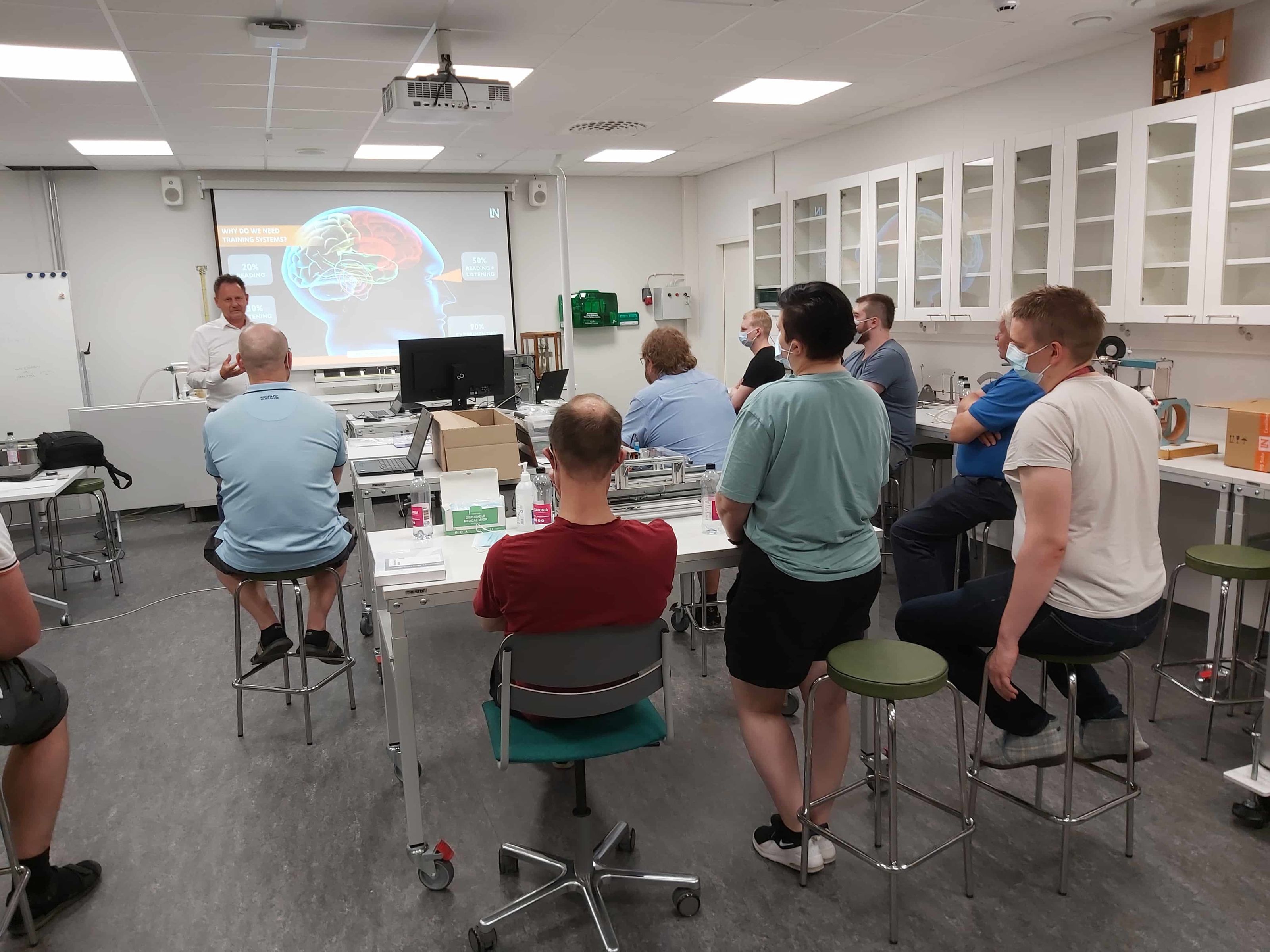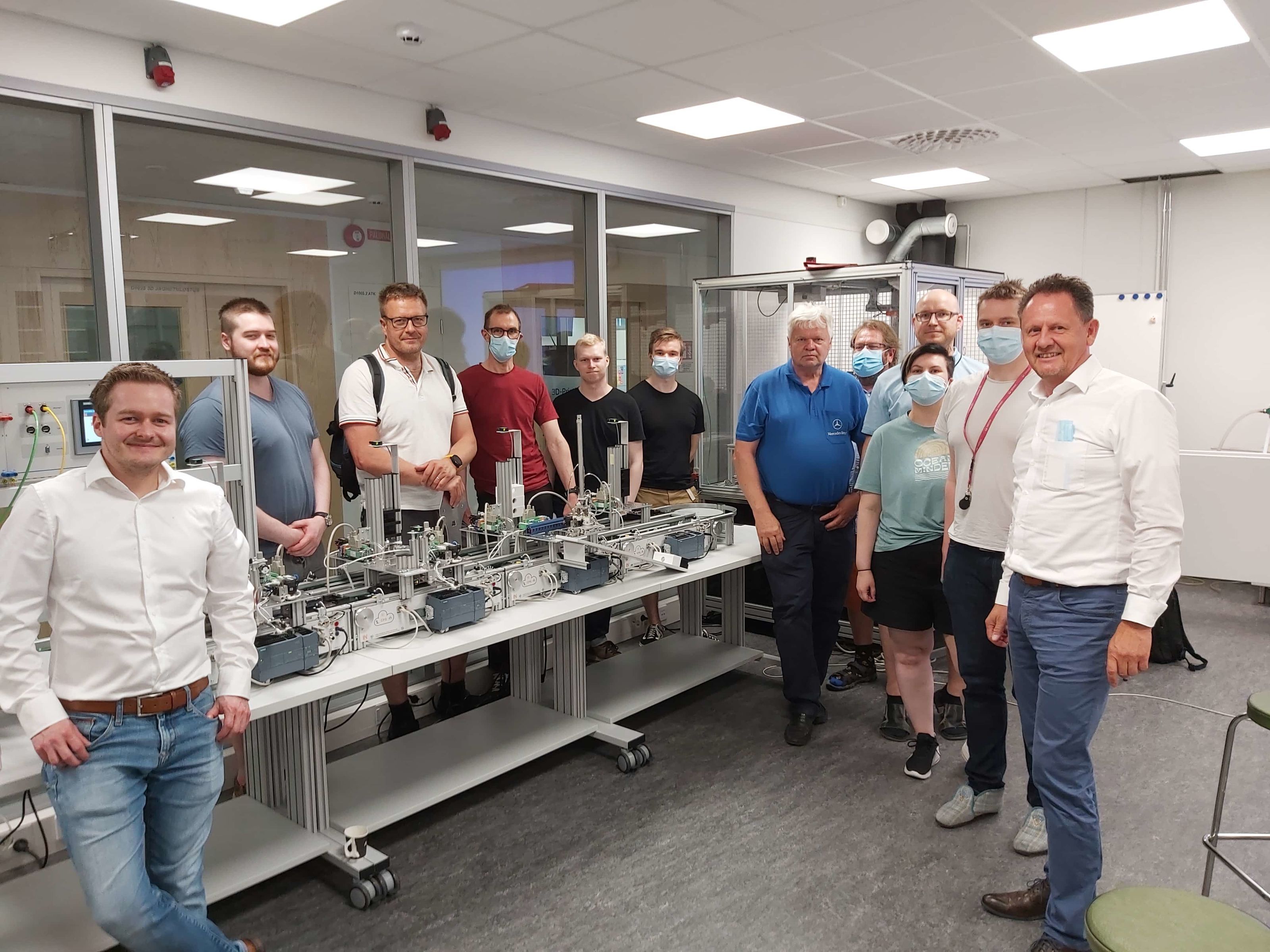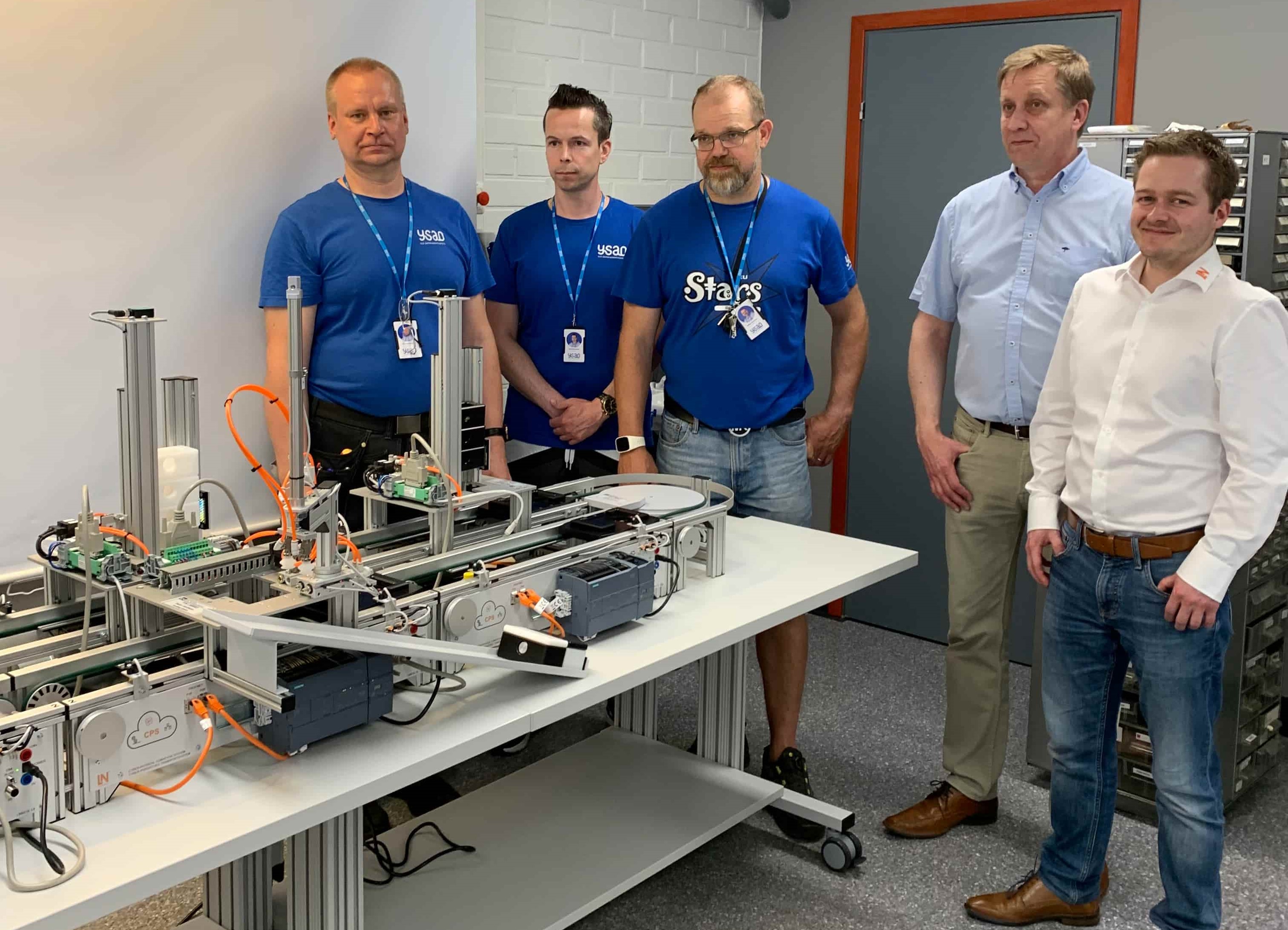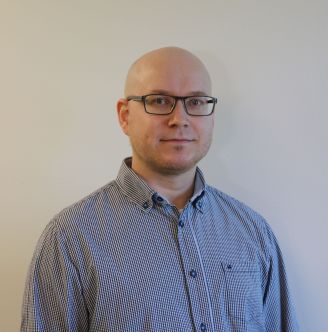Strengthening passability between vocational training and university studies
In the Finnish region of North Savo, the Savonia University of Applied Sciences and the Ylä-Savo Vocational College work together in Industry 4.0 with specifically coordinated training concepts.You drive for a while northwards through the eastern lake region of Savo from Kuopio to Iisalmi. The typical Finnish landscape connects the two cities, as does an eventful history in the border region with Russia. And recently there has been further cooperation between the towns: here the North Savo Region has promoted a project that focuses on greater permeability between vocational training and university education.
"The barriers between the different levels of vocational qualification were quite high in Finland for a long time," explains Asmo Jakorinne. The computer engineer teaches, researches and develops in the fields of IoT and process control at the Kuopio site of Savonia University of Applied Sciences. "Recently, however, more and more vocational trainees are opting for follow-up studies, and this is a development we want to specifically encourage here in the Savo region." On the one hand, this means that the path from vocational training to the university of applied sciences and into research should become easier, and on the other hand, that university students should be given more practical knowledge.

What sounds good in theory, however, needs functional solutions in practice. "When we expressed our need for an Industry 4.0 system for our laboratories, our goal was, of course, research and not just teaching. So we were looking for an environment in which we could, for example, practically test the sensors and actuators we had developed," Jakorinne explains. "We were then informed that the Ylä-Savo Vocational College in Iisalmi was also currently developing a new Industry 4.0 programme and given the task of coordinating the two programmes in the sense of the permeability described above."
The computer scientist and his colleagues in Kuopio and Iisalmi were now faced with the challenge of developing laboratories that would enable both practical education and training for the vocational school and research and development. "The Industry 4.0 solution that was then presented to us by Lucas-Nülle enabled us to build precisely this bridge," recalls Jakorinne, who explains, "On the one hand, the equipment provides the Ylä-Savo College with the necessary learning content to understand the functional principles of Industry 4.0 in a practical way, and on the other hand, its modular design makes it an open facility that can be adapted and expanded accordingly for research and development.

In order for the users at both locations to benefit fully from the possibilities, it was finally decided to equip each location with its own Industry 4.0 training factory. The added value for the students is not only that vocational students are already familiar with the laboratory technology when they continue their studies at Savonia University: Rather, both systems are supposed to run on the same network, so that resourceful vocational students can gain their first insights into the university of applied sciences environment. "And we in research also benefit, of course, from being able to draw on a twin of our factory," the engineer emphasises.

Even if the hands-on approach and the digital learning content were not the decisive arguments for the university, Jakorinne and his team have come to appreciate both aspects of the system. "It is extremely helpful, especially for students who come to the university from high school with theoretical study background and minor practical work experience, to be able to work with real components and close to practice for once," Jakorinne reports, adding, "and the digital learning content, which was actually intended primarily for vocational training, helps us to get the systems up and running quickly and thus gain valuable time in teaching."
Jakorinne and his colleagues will use the plant primarily for research and development. Initial plans to expand the facility to include robotics and machine vision solutions developed in Kuopio are already on the desk. For the future, they are also planning a similar cooperation with a technical university and thus a step towards a master's degree and deeper into research. "Of course, not every vocational student takes the path via bachelor's and master's to university research," Jakorinne knows, "but we want to open all doors as wide as possible for those who bring the talent."

process control at the Kuopio site of Savonia University of Applied Sciences.
Authors: Hendrik Buch (Lucas-Nülle), Asmo Jakorinne (Savonia University)